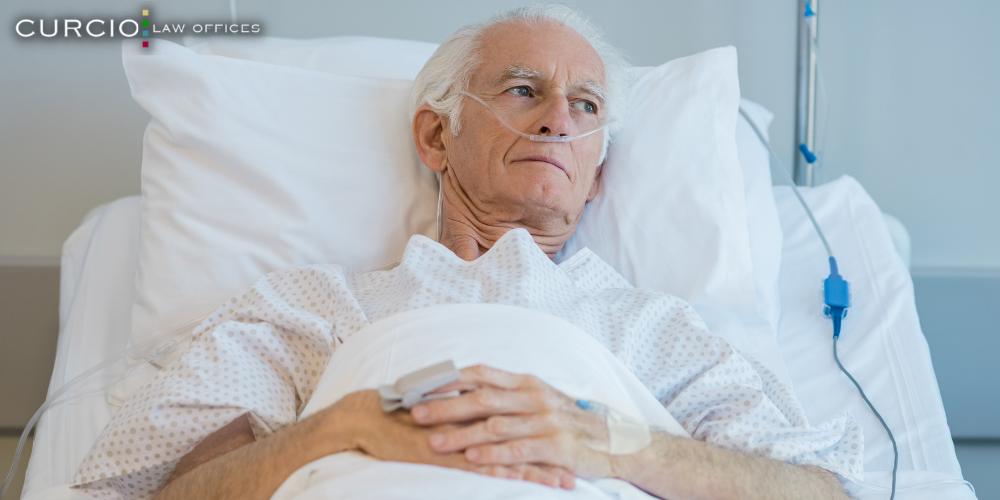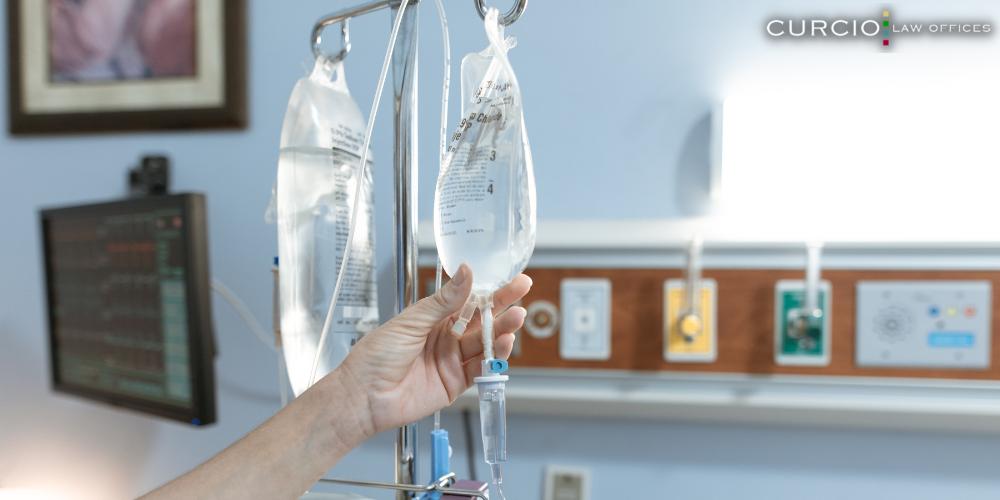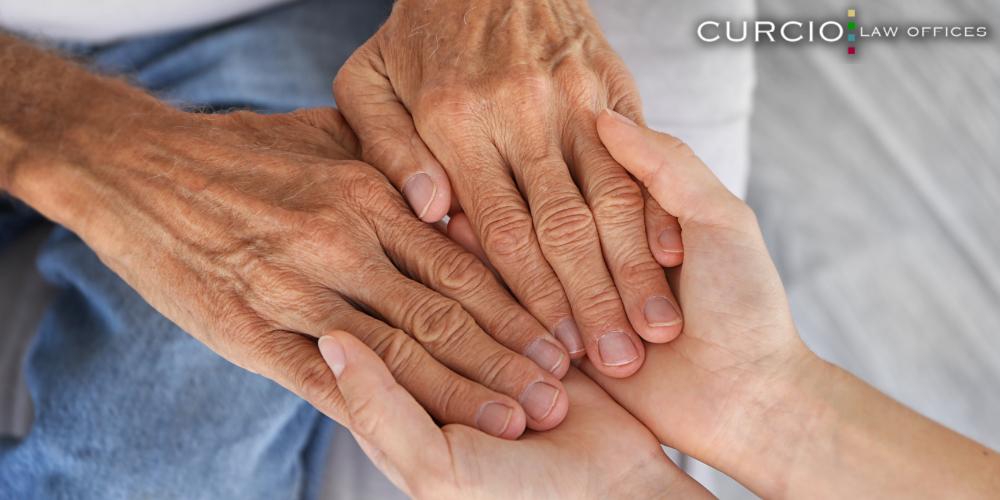CHICAGO NURSING HOME SEPSIS ATTORNEYS
PRACTICE AREAS
Chicago Nursing Home Sepsis Attorney
If a family member or loved one is a victim of sepsis, or if you’ve lost a loved one to septic shock while under the care of a nursing home or assisted living facility, you’ve undoubtedly questioned the events that led up to the loss of life.
Were more risk factors involved that led to this life-threatening condition? Was a registered nurse checking for open wounds, pressure ulcers, signs of organ dysfunction, sepsis rash, and demonstrating the medical attention needed to prevent infection? Why did this happen?
If your questions remain unanswered, you feel as if your questions aren’t being answered truthfully, or the answers to your questions lead to more questions, your loved one may have been the victim of nursing home negligence.
Sepsis is a dangerous medical condition that can affect anyone, regardless of age or residence. However, this condition can quickly become life-threatening for the elderly or those with comorbidities. Because sepsis is often a result of failure to provide proper care and medical attention, it is typically a sign of nursing home abuse or neglect. In many cases, the development of sepsis can form the basis of a negligence lawsuit.
If your loved one suffered from severe sepsis in a nursing home, contact the experienced Chicago nursing home abuse lawyers at Curcio & Casciato by calling 312-321-1111 or filling out our online form for a free initial consultation. Our Chicago medical malpractice lawyers have years of experience litigating on behalf of nursing home sepsis victims.

What is Sepsis?
Contrary to popular belief, sepsis is not an infection. Instead, sepsis is the body’s response to an infection. This means that you must first have an infection somewhere in your body before sepsis occurs.
The body will do just about anything to protect itself. This response can cause the body to damage healthy tissues, which causes the organs to function poorly or malfunction.
Sepsis occurs when your body overreacts to an infection. This overreaction can result in permanent injury or death.
Sepsis in nursing homes can be caused by infections resulting from bedsores or improper wound care, which elderly patients or bedridden patients are particularly vulnerable to.
Other causes of infections include:
- Urinary tract infection (AKA: bladder infections)
- Kidney infections
- Bloodstream infections
- Pneumonia
- Bacterial infections
- Digestive system infections
If your loved one contracted sepsis because of a stage 4 bedsore, our Chicago nursing home bed sores attorneys can help pursue compensation. Or if your loved one contracted sepsis because of an untreated urinary tract infection, our Chicago nursing home UTI lawyer can help.
Stages of Sepsis
What are the stages of sepsis?
- First Stage Sepsis: The body releases toxins into the bloodstream to fight the infection. This can cause body temperature to rise up to or over 101 degrees. The patient’s blood pressure and heartbeat rises and breathing is faster.
- Second Stage Sepsis: If the patient isn’t treated, sepsis progresses to the second stage. This stage is also known as “severe sepsis.” These symptoms include declining cognitive function, infrequent urination, difficulty breathing, decreased platelet count, and abdominal pain.
- Third Stage Sepsis: This stage is also called “septic shock.” This stage requires immediate attention, as this is a medical emergency, and oftentimes, those who suffer from septic shock die.
With early treatment, the sepsis survival rate is very promising, with some individuals being completely healed within a matter of weeks or months. But when elderly residents don’t receive immediate medical care once sepsis develops, it can result in death.
When a Chicago nursing home fails to take adequate infection precautions, and this results in the nursing home resident developing sepsis, then the nursing home facility may be liable for the ramifications. If you suspect negligence within a Chicago nursing home, don’t wait.
If your loved one died as a result of sepsis in a nursing home, our Chicago nursing home wrongful death lawyers will handle any questions with compassion.
Call Curcio & Casciato at 312-321-1111 for a free legal case review.
How Does Sepsis Lead to Septic Shock?
Sepsis leads to septic shock when the sepsis progresses through the four stages without critical care medicine. Once the patient reaches the septic shock stage, the chances of mortality are doubled.
The body will experience the following:
- Systemic Inflammatory Response Syndrome: or SIRS, is the initial stage of the body’s inflammatory response to an infection.
- Sepsis: Lack of timely treatment for SIRS can cause someone to begin experiencing sepsis symptoms.
- Severe Sepsis: Sepsis that has progressed and spread to organ dysfunction.
- Septic Shock: Sepsis that has spread and taken over many body portions, causing massive system dysfunction.
Sepsis in Chicago Nursing Homes

Chicago nursing home residents with underlying health conditions are at a higher risk for developing sepsis. Oftentimes, sepsis occurs when nursing home residents develop urinary tract infections, pressure ulcers, or other types of mismanaged nursing home infections.
Nursing homes or assisted living facilities significantly affect a resident’s health prognosis. Adequately checking high-risk patients for sepsis symptoms, such as respiratory problems or reoccurring blood clots, can save a patient from blood poisoning. Preventing sepsis in nursing homes should be a priority for caretakers, and when it isn’t, elderly residents can lose their lives.
If your loved one suffered from a preventable infection, contact a Chicago nursing home infection lawyer from Curcio & Casciato.
Risk for Sepsis Nursing Diagnosis: Why are Nursing Home Residents Vulnerable to Sepsis?
Nursing home residents have an increased risk of developing sepsis for many reasons. However, most of those reasons stem from nursing home negligence.
Typically, older adults with weakened immune systems are the more vulnerable population, making them more susceptible to chronic medical conditions. For this reason, providing immediate treatment is key to stopping the body’s inflammatory response when an elderly patient does develop an infection. Unfortunately, medical treatment in nursing homes isn’t always what it should be.
Regardless of whether the act was intentional or if the negligence was a result of understaffing, improper training, or poor infection control, families that fall victim to nursing home sepsis deserve answers and compensation.
How is a Nursing Home Responsible for Sepsis?
A nursing home may be liable for sepsis if the nursing home staff caused the underlying infection or failed to recognize the symptoms of sepsis in nursing home patients. Every nursing home must take reasonable precautions to prevent the spread of infections, especially urinary tract infections (UTIs), pressure ulcer infections, and pneumonia in the elderly. This is called antibiotic stewardship.
Higher-risk residents with compromised immune systems should stay away from those who are sick, in general. And when the nursing home fails to prevent infection, it could be liable for neglect.
Furthermore, if nursing home caretakers are careless with catheters, IVs, or other medical tools, nursing home residents can also contract avoidable sepsis infections.
Nursing homes and assisted living facilities have a legal obligation to provide a reasonable level of care for their patients. This includes providing professional medical advice, preventing infections, and helping the nursing home resident to live without consistent pain.
Many infections that lead to sepsis in nursing homes worsen when the elderly patient is transferred from the nursing home or assisted living facility to the hospital’s intensive care unit (ICU). These transfers could have been avoided if the nursing home staff followed the established infection control program when they provided care.
Sepsis is avoidable when the facility maintains sanitary conditions, cleans insertion sites and medical equipment, keeps residents moving as much as possible, and confines germs to the smallest location possible.
When a nursing home fails to take these precautions, and a patient develops sepsis, the facility may be liable for damages through a nursing home sepsis lawsuit. This means that they may be responsible for any out-of-pocket expenses, medical bills, and pain and suffering.

Can You Sue a Nursing Home for Sepsis in Illinois?
Patients who develop sepsis in nursing homes due to nursing home abuse or nursing home neglect have a right to file a civil lawsuit seeking compensation for damages.
In Illinois, lawsuits for sepsis in nursing homes are divided into two separate claims: wrongful death lawsuits and estate claims for personal injury. Wrongful death lawsuits are typically brought by the surviving spouse or children of the deceased, while estate claims are brought by the deceased resident’s estate.
The victim’s nursing home neglect lawyer or the family’s wrongful death lawyer will need to prove four elements in order to resolve their claim either through a negotiated settlement or through a trial.
Elements of Negligence for Nursing Home Sepsis Claims
The four elements of negligence include:
- The nursing home or assisted living facility owed the victim a duty of care to ensure their health was a priority.
- The duty of care was breached through either nursing home neglect, abuse, intentional action, or mistreatment.
- The victim suffered harm due to this abuse or neglect.
- As a result of the breach of duty, the victim has economic or non-economic losses or both.
Hundreds of Illinois nursing homes have faced serious penalties and fines due to violations involving nursing home abuse, neglect, and mistreatment of their patients. Most of the cases involved a preventable infection, such as a urinary tract infection, festering surgical wounds, and bedsore injuries, all which lead to nursing homes sepsis injuries.
If your loved one developed sepsis while staying in a nursing home, you may have a valid nursing home abuse claim.
This means that the nursing home could be responsible for the economic and non-economic damages like medical bills from the Medicaid services, out-of-pocket expenses (including hospital transfers), pain and suffering from the emotional distress of the medical malpractice case, etc.
To learn more about how our Chicago nursing home abuse lawyers can help your family during this trying time, call 312-321-1111 for a free case evaluation.

Experienced Chicago Nursing Home Abuse Lawyer
Severe sepsis in nursing homes goes hand in hand with nursing home abuse. If your family member or loved one has continual problems with underlying health conditions like pressure ulcers, UTIs, or open wounds in a Chicago nursing home, time is of the essence!
If you suspect that your loved one contracted or died from sepsis due to elder abuse, you may be entitled to compensation. Call Curcio & Casciato at 312-321-1111 for a free legal case review.


